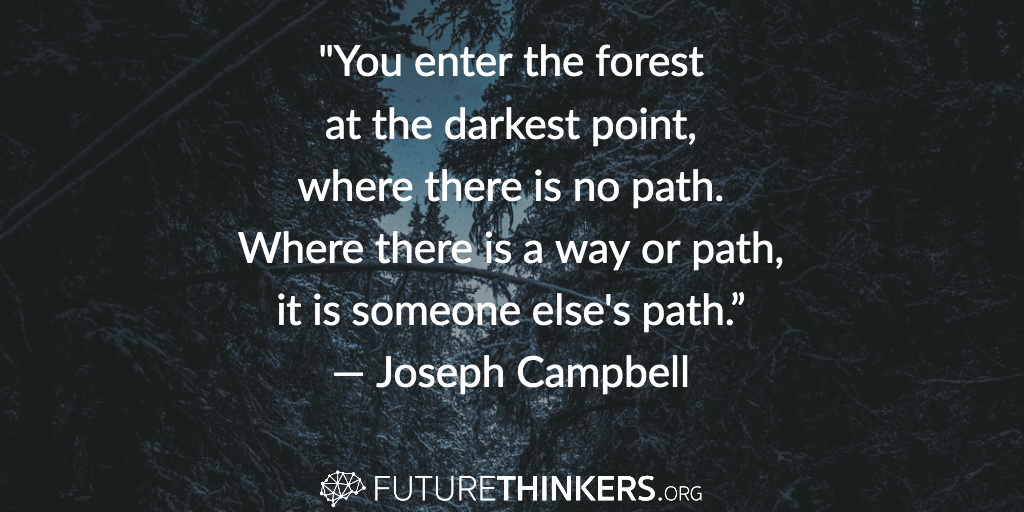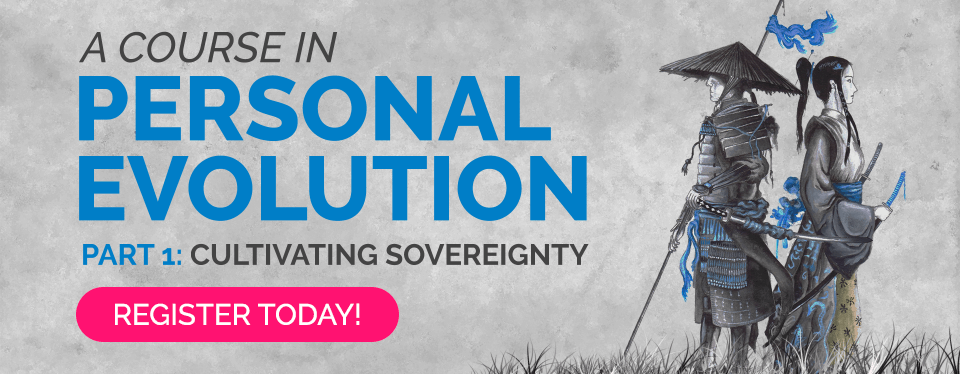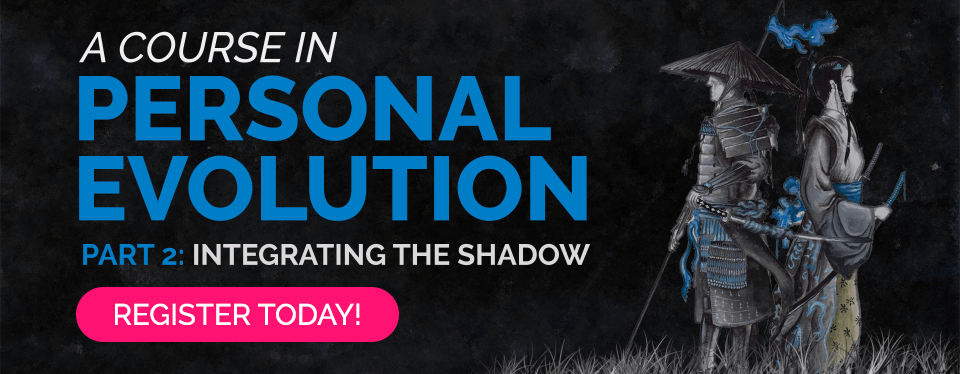by Mike Gilliland
I find myself constantly asking: what is the right question to ask?
I ask myself that question before interviewing podcast guests.
I sometimes ask our guests that question.
I ask it of myself when I start a new project or venture.
I ask myself this question when confronting challenges of all sizes.
I ask it of myself when working on my personal relationships…
Learning how to ask the right question has been useful in my life, because it starts me off from a place of not knowing; I don’t start with the assumption that I already have the answer, I start with a question. Each time I ask this question, it produces a chain reaction of new questions that over time and with enough patience, lead me to answers.
When I ask myself “What is the right question to ask?”, usually this is what I come up with:
- What is the most interesting or useful conversation to have?
- What’s going on in the world? What are the facts?
- What do we do about all the division? How do we get people on the same page?
- What do we do about the planet?
- What is the best way to live?
- What do I do about my anger?
- What should I do with my life?
- What action should I take in the world?
- What are my obligations to my fellow human beings?
- Why am I afraid of death?
- How can I deal with the difficult situations I face?
- How should I handle the success or power that I hold?
Whichever questions resonate the most at that moment are the ones I focus on answering. If I’m not able to get any useful answers right away, I’ll stretch these questions further, by going meta.
“What does this mean at a meta level?”
In other words:
- Where does it lead?
- What are the underlying reasons for it?
- What is my experience of it?
- How does it work?
- What are the societal and human level implications if we all do it?
In the pursuit of these questions and their answers, I’ve noticed that it can be hard to differentiate between what is worth thinking about and what isn’t. There are just so many options, and so many people and organizations urging my thinking in one direction or another. So many apparent crises that need my attention. Daniel Schmactenberger calls this the crisis of sensemaking.
Most people pay attention to what is salient:
- What feels most urgent or immediate
- What is loudest or scariest
- What feels good
- What their social groups pay attention to
- What is easiest to pay attention to
Naturally, they tend to avoid
- What makes them feel shame or embarrassment
- What causes pain or dread
- What requires a lot of effort, focus, and attention
- What makes them feel conflicted or confused
- What is ugly to look at or think about
- What they feel they can do nothing about
- What nobody else seems to care about
- What is boring
Nobody wants to pay attention to social or environmental collapse, the fragility of our lives, societies, and systems, the possibility that our mostly deeply cherished truths and beliefs may be completely false…
For example, maybe there IS a God… and maybe there isn’t. Maybe the the universe is good… and maybe it isn’t. Maybe we’re oppressed or victimized… and maybe we’re not. Maybe we are responsible for the condition of our lives and the world… and maybe we aren’t.
What is salient is often unimportant, ineffectual, or altogether false. And what we avoid is often what we most need to deal with. These thing we avoid, if faced, are the very things that transform our lives, our society, and our planet. Those triggering emotions that come up when we feel that our most deeply cherished truths and beliefs are challenged – the anxiety, fear, guilt, clinginess, jealousy, neediness, and panic.
So how do I know what is worth thinking about, and how do I identify what seems urgent but isn’t actually important?
Here is my process. If I’m struggling to make a decision or come up with an answer, first I take inventory of what I’m currently paying attention to (if I haven’t done this exercise in a while, it tends to be what is most salient), and what I feel I am avoiding. I know I’m avoiding something when my stomach goes upside down from thinking about it. I write it all of down on a piece of paper so that it can stop rattling around in my mind, and so I can get some distance from it. I try to slow down and be present with how my body and my mind are reacting to what I’m thinking about. I’ll sometimes meditate. If the thought is challenging or triggering, I generally will choose to sit with and lean into it, allowing my mind to immerse itself in the feelings that those thoughts generate, while trying not to judge them or let my mind wander off on some new train of thought. Eventually after feeling these feelings fully, they subside and I’m able to get some clarity on the subject. If they don’t, I’ll usually bring it up with Euvie or in our weekly group calls to see what other people think.
If you want to join a group where you can regularly discuss these sorts of questions, you can become a member at http://futurethinkers.org/members.
We also do occasional public calls that you can join here: http://futurethinkers.org/discuss.



